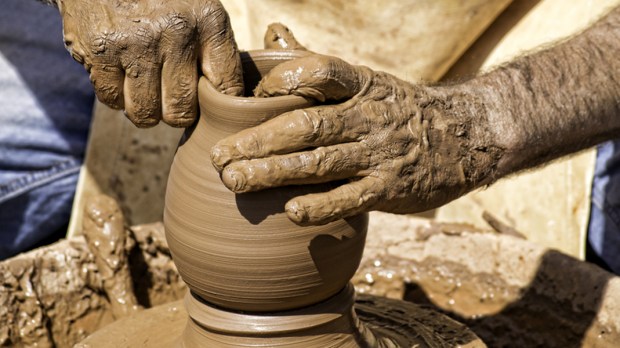One Saturday I was giving a diocesan day of recollection for an awesome group of women and, to illustrate a point, I posed this question to them. Say you come home late one night from work, weary and exhausted, but you still have to make dinner. So you open the refrigerator and there’s that leftover brussel sprouts, lima bean, and liverwurst casserole. But then you spot a delicious, homemade lasagna that your grandmother just dropped off. Given the choices, I asked the women, What do you make? Came the answer from the middle of the room: Reservations!
Ah, wisdom. The Book of Wisdom reminds God, You love all things that are/and loathe nothing that you have made;/for what you hated, you would not have fashioned (Wis 11:24).
Whenever I hit a spiritual dry patch, and praying seems next to impossible, I sit still and remind myself of this: I exist. I am here. And I myself had nothing to do with that. Someone decided to bring me into being. Someone wants me to exist. And the simple fact that Someone made me means that that Someone likes me. Maybe even loves me. So I need to acknowledge that and really pay attention to it.
Because then wondrous truths become clear.
First of all, that life is a gift. My life…all of reality…is given. In fact, the human being “is the only creature on earth that God has willed for its own sake” (CCC 356). Elated, the Psalmist exclaims, What is man that you should be mindful of him…. You have made him little less than the angels (Ps 8:5-6). St. Thomas Aquinas observes that “artisans make everything from a model that first they design in their heart.” You were a design in the heart of God whom he then “created…in his image and established…in his friendship” (CCC 396). To be an “I” is to be wanted by Someone greater than myself.
Something else: not only did I not make myself—I can’t even make myself to be the way I want to be. Recall Paul’s plaintive frustration: I cannot even understand my own actions. I do not do what I want to do but what I hate (Rm 7:15). That powerlessness can be paralyzing. Our desire goes so deep to be holy, to be happy. But I seemed doomed. Until I remember that—before—I did not exist, and then Someone brought me into existence. And that is an act of mercy. As St. Thomas says, “The quality of mercy consists in bringing a thing out of non-being into being.” Mercy made me! And since mercy made me, I can have hope and confidence that mercy will continue to sustain me, and rescue me from my failures, and even perfect me. To be myself, I need Someone greater than myself. That awareness is the beginning of what the Catholic Church calls morality.
A third point: to be made is to be part of a belonging…to be in relationship with the Someone who made me. The best way to live that belonging is to depend on the One who brought us into being and keeps us there. And he responds with an illimitable love that never stops telling us, It is necessary that you exist!
And finally, I have been made for a reason. I’m convinced I have a purpose, a mission. To know my meaning, I must know my Maker. Calling out to him is what we call prayer. “I cannot say ‘I’ if I do not say ‘You who make me.’ The awareness of this truth erupts in humility and prayer. Our acknowledgement of him who makes us coincides with our asking him to give us life” (L. Giussani).
Keep this in mind when, at Mass every Sunday, you profess the Creed and say, I believe in one God, the Father almighty, maker of heaven and earth. And of you. Especially you.

